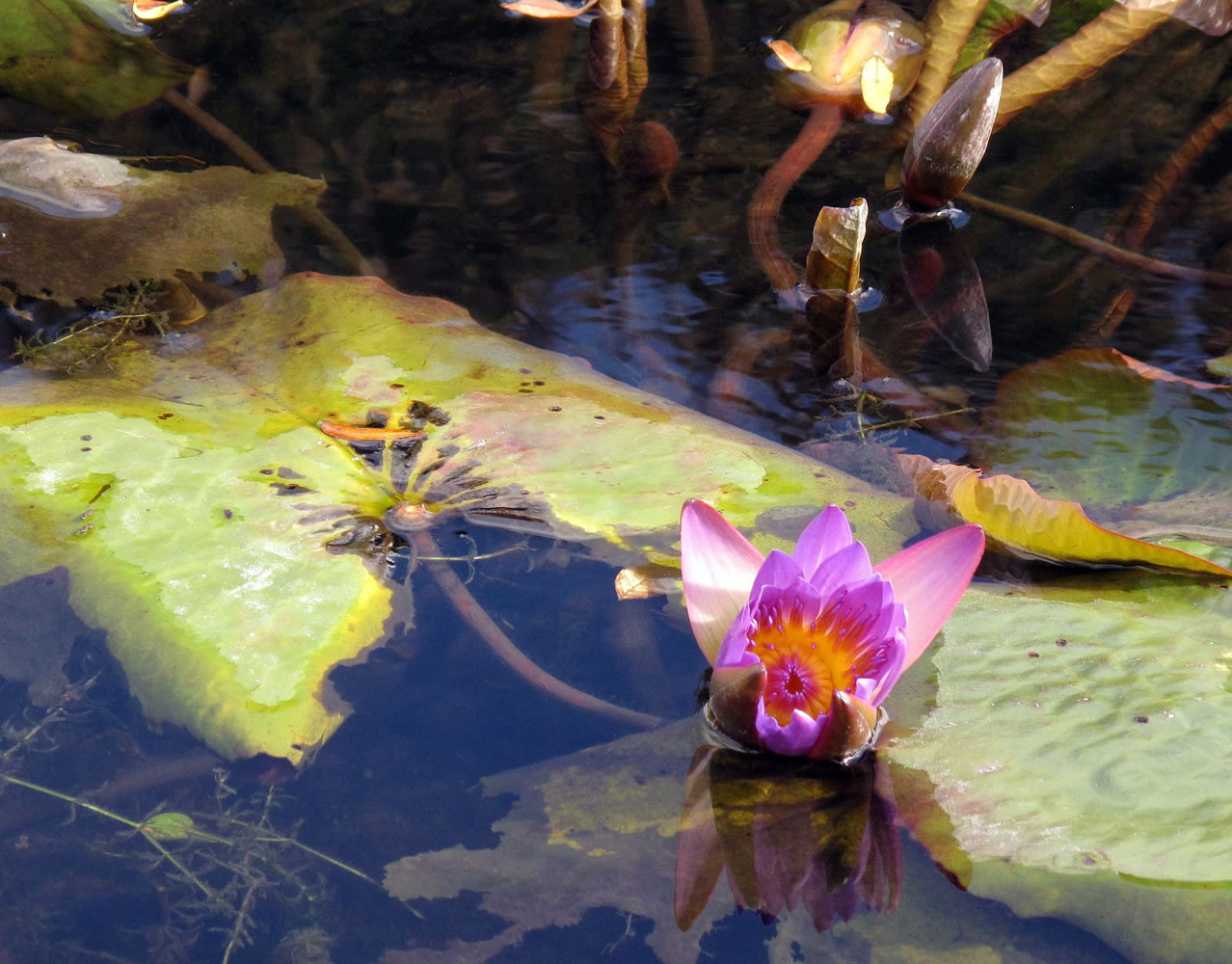For many people with backyard ponds, fountains and other water-garden fixtures, the arrival of cold weather means draining pipes and pulling plugs.
But water gardens can be attractive winter gardens, too, with the right preparation and landscaping.
Turning off a garden’s water fixtures may not be necessary, depending on where you live, said Keith Folsom, president of Springdale Water Gardens in Greenville, Va. “Their wintertime effect is always different and attractive with the use of landscape lighting and the right plants.”
“We had an extremely cold winter here last year but it wasn’t a problem,” he said. “Pay attention and know how much water you’re using below the ice. You have to keep that flow topped off.”
Ensure that water lines and fixtures are drained if you do decide to turn them off so they won’t expand with freezing and break, Folsom said. “Running water, on the other hand, prevents icing.”
Landscaping around water fixtures can mean simply adding a few evergreens for contrast against snow, or stringing some lights around the ice.
“People who live in the South will most likely keep their ponds going, and use cold and frost-tolerant landscaping for visual interest,” said Tavia Tawney of Aquascape Inc. in Chicago.
Tips for preparing your pond for the freeze-up:
• Remove debris before it can decompose. That prevents organic rot, loss of oxygen and an accumulation of toxic gases. “The bigger problem comes if you stir it up,” Folsom said. “That can turn up bacteria that will be harmful to fish.”
• Keep leaves out. Cover the water with a screen, sweep the surface with a long-handled net or install skimmers like those used on swimming pools.
• Prune. Pinch off aquatic plants as they die back. Reposition hardy potted water lilies into deeper water. “Bring the tropicals inside the house for winter,” Tawney said.
• Stop feeding the fish. “It is very important to stop feeding the fish once water temperatures reach 50 degrees, as they go into a deep slumber and do not digest the food they may eat,” Tawney said.
• Use a bubbler or tank heater if you have fish. “We use an aerator bubbler to add oxygen to the pond if the falls are turned off,” Tawney said.
It’s best to maintain water gardens throughout the year rather than scramble to get things done before winter sets in, she said.
“It is not advisable to do any major cleaning once the fish are ‘hibernating,’ because that is very stressful for them,” she said



